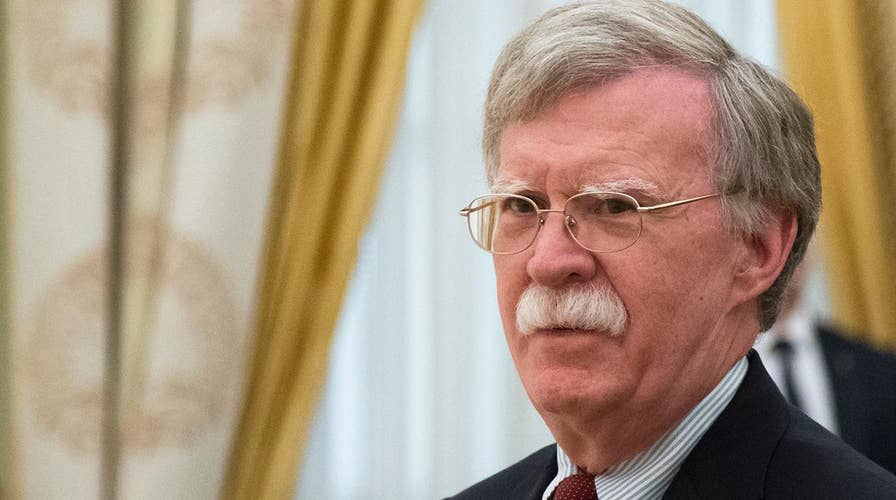Bolton in Russia for talks on nuclear treaty
Trump announces intention to pull out of a 1987 nuclear treaty with Russia. Rich Edson has the latest from the State Department.
President Trump and Russian President Vladimir Putin are slated to meet in Paris next month on the sidelines of the celebration of the 100th anniversary of the armistice that ended the First World War, White House National Security Adviser John Bolton confirmed Tuesday.
“As Putin said in the opening of the meeting, ‘It would be useful to continue a direct dialogue with the president of the United States’,” Bolton said at a news conference in Moscow on Tuesday after meeting with Putin. “I said yes, in fact, President Trump would look forward to meeting with him in Paris.”
Bolton added that U.S. officials would work on arrangements for the meeting, which is currently set for Nov. 11, Veterans’ Day.
Over the summer, the president and Putin met in Helsinki, Finland, as part of Trump’s first European tour. Trump drew bipartisan criticism over comments made during a joint press conference with the Kremlin leader after the summit.
During the summit, Putin proposed an unusual quid pro quo, offering to let Special Counsel Robert Mueller question indicted Russian officers as part of his ongoing election meddling investigation if Russians could question certain U.S. individuals. Trump, on the spot, called the offer “incredible.” Trump was also criticized for saying that he didn’t “see any reason why Russia would be” behind election meddling. Days later, he clarified his remarks up returning to Washington.
“I said the word ‘would’ instead of ‘wouldn’t’…sort of a double negative,” Trump explained in July.
The topic of election meddling came up anew during Bolton’s meeting with Putin. Bolton said that Russian meddling in U.S. elections was counterproductive for Russia.
“What the meddling did create was distrust and animosity within the United States,” Bolton said Tuesday, “and particularly made it almost impossible for two years for the United States and Russia to make progress diplomatically.”
Bolton added: “So that’s a huge loss to both countries, particularly to Russia. So it’s a lesson I think: Don’t mess with American elections.”
Russia has vehemently denied any state-sponsored meddling, but Putin has said some “patriotic” hackers could have been involved.
Bolton also discussed the Intermediate-Range Nuclear Forces Treaty (INF) with Putin and Sergey Lavrov, which was signed in 1987 by Soviet President Mikhail Gorbachev and President Ronald Reagan. Trump says Russia has violated terms of the treaty, which prohibits the U.S. and Russia from possessing or creating nuclear cruise missiles with a range of 300 to 3,400 miles.
“It is America’s position that Russia is in violation. It is Russia’s position that they are not in violation,” Bolton explained. “So one has to ask, how do you convince the Russians to come back into compliance with obligations they don’t think they’re violating.”
Trump, over the weekend, announced that the U.S. would remove itself from the INF due to violations. But Bolton said that China has expressed interest in the U.S. remaining part of the treaty.
Bolton, though, said the U.S. estimates that one-half to one-third of Chinese ballistic missiles would be in violation of the treaty if they were a part of the agreement.
Bolton said that formal notification of U.S. withdrawal from the INF pact would be filed in “due course.”
The Associated Press contributed to this report.





